SCHOFIELD BARRACKS, Hawaii - It was a casual sunny Saturday afternoon in 2006 when a commissioned officer visited his neighbor for a beer and barbecue outing.
Little did the Soldier know, the outcome of that day would forever change his life.
The officer stood in front of a small group of Soldiers from Tripler Army Medical Center, (TAMC) here, Feb. 28, and shared his story during the Schofield Barracks Health Clinic safety standdown.
"My military career was ruined by my actions," said the officer, "but hopefully I can save one of you by sharing this story."
The officer explained that after the neighborly gathering, he was talked into traveling south to Waikiki for the evening, against his better judgment.
As the night ended, the officer searched for a cab, with no luck. He quickly moved to Plan B, slowing pulling the keys out of his pocket.
"I had a feeling something was going to go wrong," said the officer, "but in my mind, I was okay."
On the drive back to Schofield Barracks, he was pulled over for an unlit taillight.
The police officer questioned him about his whereabouts that evening and asked to perform a breathalyzer test.
"I said sure. I thought I had nothing to hide," said the Soldier. "But when I blew into it, 13 years of my military career went down the drain."
Soldiers listened to the officer as he explained the details and outcome of the driving under the influence (DUI) ticket he received that night. They asked questions and gained information on the repercussions of such actions.
The group then moved to the next briefing, and a new group of Soldiers stepped in to listen to the story.
A few yards away, Karen Powell, prevention education instructor for the local Army Substance Abuse Program (ASAP), spoke of statistics on drug and alcohol abuse. She said 54 Army Hawaii Soldiers were ticketed with DUIs in the month of January.
Additionally, Powell stated more than 4,300 tickets for DUIs were issued islandwide in 2008.
"If that doesn't scare you, it should," she said.
Powell provided information for organizations and to assist Soldiers and family members overcome a drug or alcohol problem.
A representative from the Family Advocacy Program (FAP) discussed family concerns regarding drug and alcohol abuse, and a Judge Advocate General (JAG) representative discussed the ramifications of drinking and driving.
At one point, the briefings were interrupted by the sound of a siren. Two military police officers pulled over a truck in the adjacent parking lot.
In the driver's seat of the truck sat "Soldier at Risk" Sgt. Troy Wollan, TAMC, who agreed to participate in the demonstration by consuming alcoholic beverages throughout the morning.
Wollan consumed in a controlled environment, and he did not operate the vehicle, although the investigation continued as if he were the driver.
Sgt. Melody Peace, 558th Military Police (MP) Company, and Pfc. Rene Cordero, 39th MP Detachment, showcased the steps taken to determine if a driver is DUI, by conducting the Standardized Field Sobriety Test on the Soldier.
Testing includes the horizontal gaze nystagmus test (eye test), the walk-and-turn test, the one-leg stand, and a Breathalyzer test. Each procedure was explained to the Soldiers.
The testing concluded Wollan was intoxicated and legally unfit to operate a vehicle.
"This is not fun," mumbled Wollan as he sat in handcuffs.
The round-robin standdown event armed Soldiers with needed information to live safely and make healthy decisions.
"We aim to provide information and provide new innovative ways to change Soldiers' behaviors," said Command Sgt. Major David Vrleeland, TAMC. "We want to reward good behavior and mitigate bad behavior."
The safety standdown was mandatory for all TAMC Soldiers in C Co.
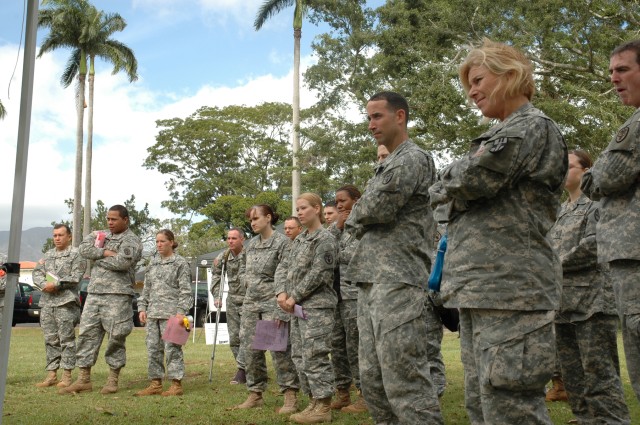
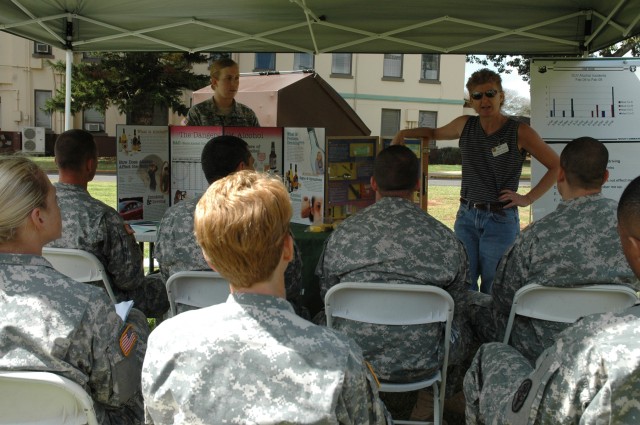
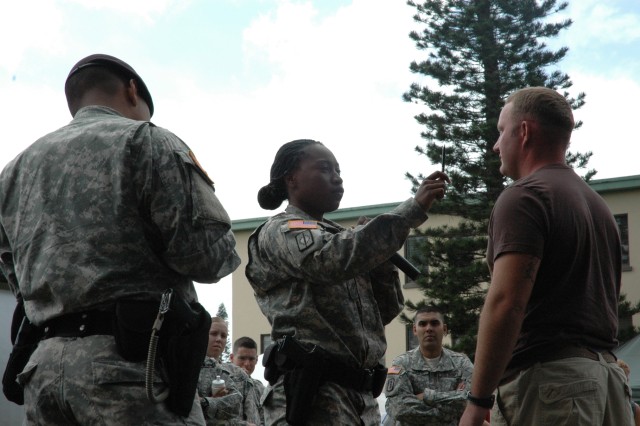
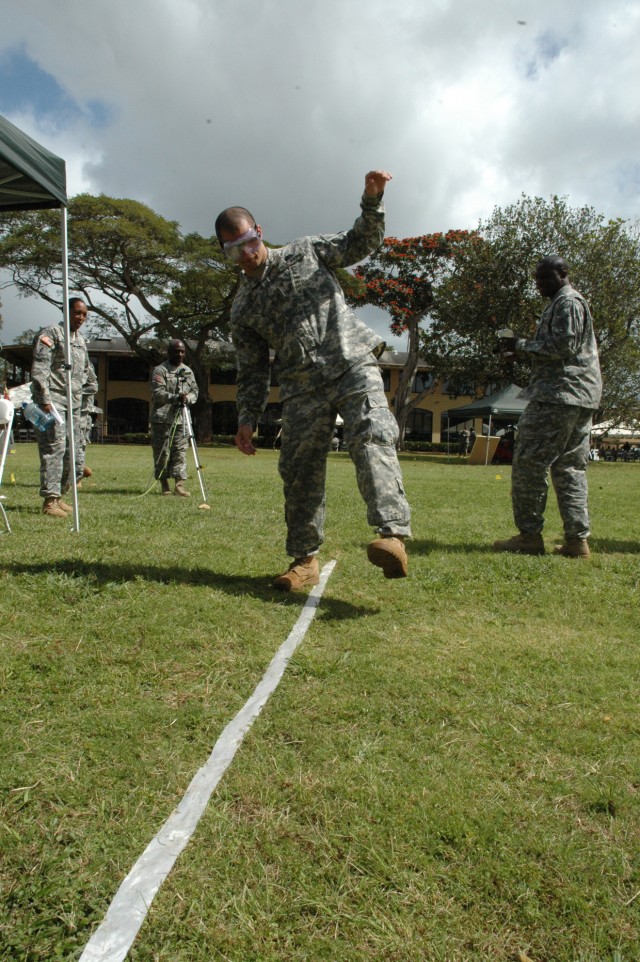

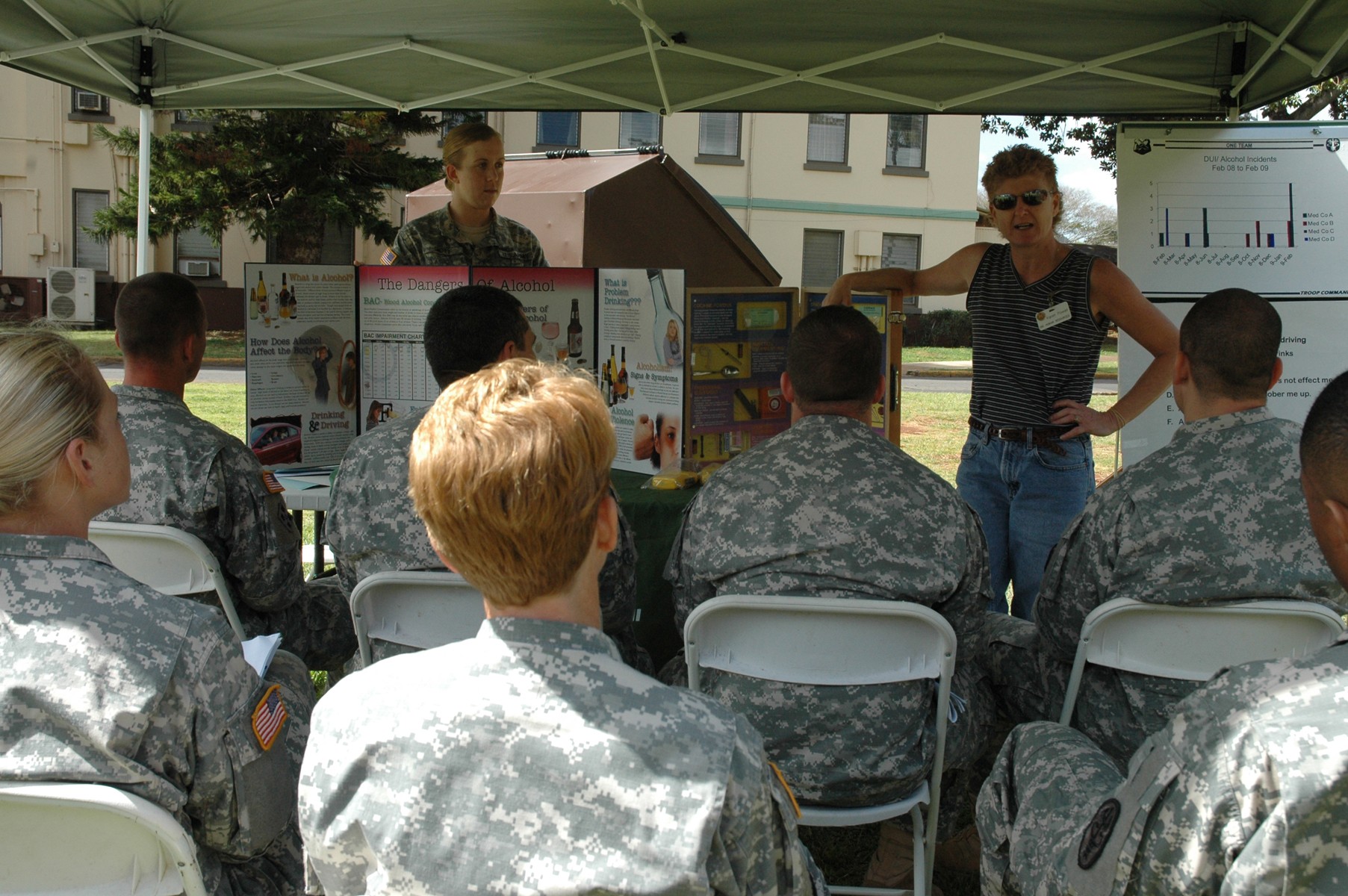


Social Sharing